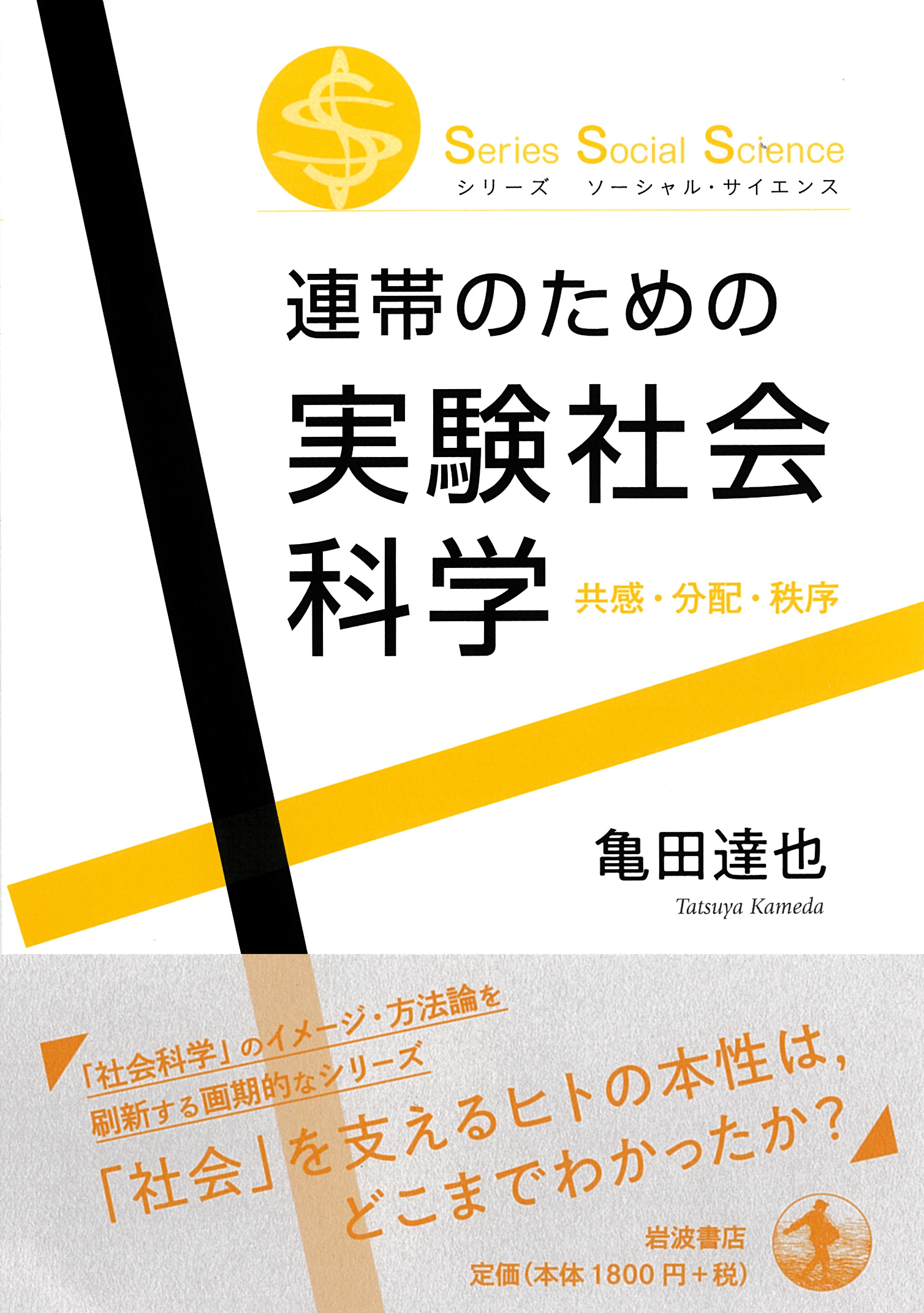
Title
“Shakai no Kimari” ha donoyouni kimaruka (Frontier Experimental Social Science 6: How Are Social Rules Determined?)
Size
208 pages, A5 format
Language
Japanese
Released
January 20, 2015
ISBN
978-4-326-34916-6
Published by
Keiso Shobo
Book Info
See Book Availability at Library
Japanese Page
Today, a great trend of social science is developing. Known as experimental social science, it tries to combine various branches of social sciences with experiments as means. This book is one of the seven volumes of the series “Frontier Experimental Social Science,” being published by Keiso Shobo. The series reports the outcomes of the Grant-in-Aid for Scientific Research on Priority Areas “Experimental Social Sciences - Experiments Paving the Way to the Social Science of the 21st Century” (2007-2012). This project is a cross-disciplinary collaboration themed on social norms.
There are various rules in our society. These may be official written rules, such as laws and contracts; sets of beliefs tacitly shared among people about dos and dont’s; they may even be unspoken mutual expectations. Taking various forms, these rules dictate our behavior. They are also an indispensable component of social cohesion and collective operation. In social science terms, this system is called “social norms.” Social norms are fundamental cultural systems that allow human society to function, and at the same time hold the most important keys to distinguish from other mammalian societies, such as those of advanced primates like chimpanzees and gorillas, on an evolutionary scale.
While social norms are a theme common across the disciplines of social science, including law, political science, sociology, anthropology, and economics, very little effort has been made so far in collaborating cross-disciplinary studies that go beyond individual fields. However, the rise of game theory has given social sciences a common language, and the academic landscape has changed rapidly over the last decade. More recently, new collaborative efforts are being made between the social and natural sciences, such as behavioral ecology and evolutionary biology, through experimentation and model-building. This book describes the specific development of various inter-disciplinary studies that go beyond individual fields to explore the mechanisms of human behavior, cognition, and emotion, which are fundamental to the establishment and maintenance of social norms. It also presents the results of an empirical and theoretical collaborative study between researchers of social psychology and evolutionary biology beyond the wall of humanities and sciences, drawing on the concept of evolutionary game theory.
Experimental social science, as illustrated in this book, is the first ever attempt to create an academic “republic.” The author holds the opinion that individual disciplines in social sciences will need to overcome their “tribal” existence and collaborate with the republic meaningfully within a decade or so. The only way to achieve this is to continue working on its realization. As one of such efforts, the author is due to publish “The Origin of Morality: a Perspective of Experimental Social Science” (Iwanami Shinsho) in Spring 2017.
(Written by KAMEDA Tatsuya, Professor, Graduate School of Humanities and Sociology / 2017)



 Find a book
Find a book


 eBook
eBook








